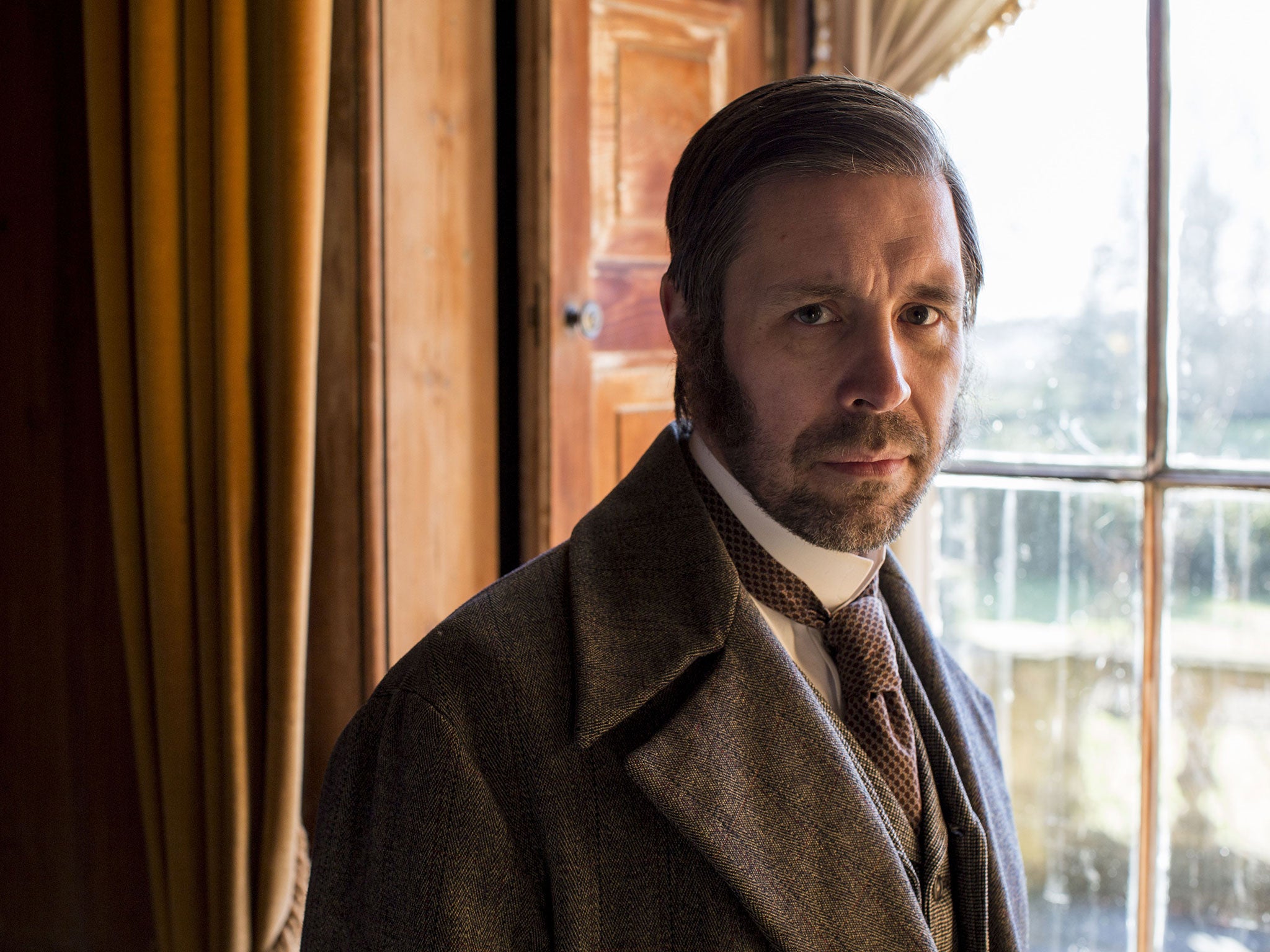The Suspicions of Mr Whicher and The Secrets, weekend TV reviews
This Victorian crime mystery needs a compelling villain to lift the gloom

Your support helps us to tell the story
From reproductive rights to climate change to Big Tech, The Independent is on the ground when the story is developing. Whether it's investigating the financials of Elon Musk's pro-Trump PAC or producing our latest documentary, 'The A Word', which shines a light on the American women fighting for reproductive rights, we know how important it is to parse out the facts from the messaging.
At such a critical moment in US history, we need reporters on the ground. Your donation allows us to keep sending journalists to speak to both sides of the story.
The Independent is trusted by Americans across the entire political spectrum. And unlike many other quality news outlets, we choose not to lock Americans out of our reporting and analysis with paywalls. We believe quality journalism should be available to everyone, paid for by those who can afford it.
Your support makes all the difference.Of the two Victorian gentlemen out for a stroll in TV-land last night, I prefer Mr Whicher on ITV to Mr Houdini on Channel 4. Houdini, especially as played by Adrien Brody in the new two-part biopic, was a bit of a self-aggrandising bore. In The Suspicions of Mr Whicher: Beyond the Pale, our detective, played by Paddy Considine, is still as diligent and self-effacing as he ever was.
This has been a problem for critics in the past. Give Whicher an opium addiction at least, they pleaded. A fondness for prostitutes, maybe? Or perhaps just a touch of agoraphobia? That was before brilliant-yet-troubled detectives reached saturation point in crime fiction. By this third outing, Whicher’s plodding efficiency is beginning to feel refreshingly novel.
If that’s the case, crime stories have come full circle: Kate Summerscale points out in her book, which was the inspiration for this series, that the real-life Inspector Jonathan Whicher was a model for the earliest fictional detectives, like Inspector Bucket in Dickens’ Bleak House and Sergeant Cuff in Wilkie Collins’ The Moonstone.
That said, we could have done with more shadow to set off Whicher’s shining integrity, and not just the kind cast by a gas lamp. Beyond the Pale lacked a compelling villain for Whicher to bounce off, unless you count the overarching, abstract evil of Britain’s imperial past. That was embodied by Whicher’s client Captain Charles, the son of former Home Secretary Sir Edward Shore. Captain Charles had recently returned to London from India and believed he’d been followed back by a nefarious band of “lascars” (Indian sailors), intent on doing harm to him and his family. These lascars had their reasons, as it later transpired.
This series may not be as action-packed as its BBC1 equivalent Ripper Street, but the slower pace does allow for a more detailed picture of Victorian society to emerge. This picture involved hidden transgressions and hushed-up massacres and – particularly well drawn – the aristocrat’s dislike of being judged as morally wanting by a jumped-up bobby. As Whicher discovered, people this concerned with notions of “respectability” are compelled to keep their secrets, at any cost.
The two-hour film ended, rather racily for the 1860s, with a longing look between Mr Whicher and his widowed landlady Mrs Piper (Nancy Carroll). You’ll have to wait till next week’s instalment, The Ties That Bind, to find out if they progress to hand-holding.
Olivia Colman, you may remember, was also a client of Mr Whicher’s once. She wasn’t having a much better time of it in The Dilemma, the first of the five half-hour dramas that make up The Secrets, the BBC’s unmissable showcase for new writing talent. In upcoming weeks we’ll see episodes written by playwrights Sarah Solemani (the star of Him & Her and Bad Teachers), Ben Ockrent and Elinor Cook. If they’re all as good as this one by Nick Payne, we’re in for a real treat.
From the moment we heard the opening strains of Nat King Cole’s “Smile”, it was obvious that this one would be a weepie, but you’d never have believed it possible that quite such a volume of tears could be produced in only half an hour. Colman, six months pregnant with her first child, was asked by her terminally ill mother (Alison Steadman) to help her die. Could she go through with it?
Steadman and Colman were both excellent, of course, but credit also to Steve Oram (Sightseers) as the jocular son-in-law, who was slightly peripheral to their sadness. That’s a tricky role to play in drama, as in life.
Join our commenting forum
Join thought-provoking conversations, follow other Independent readers and see their replies
Comments